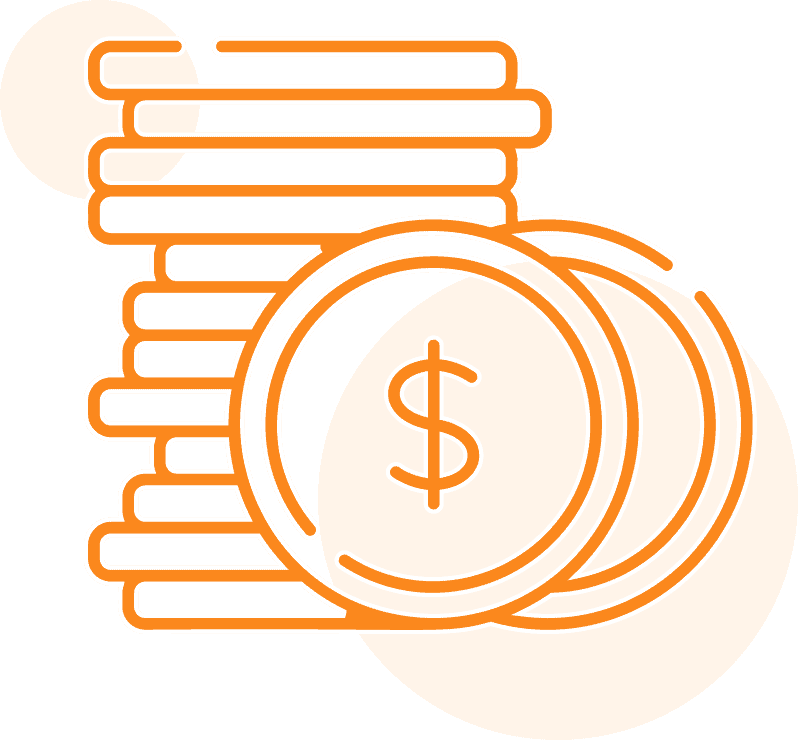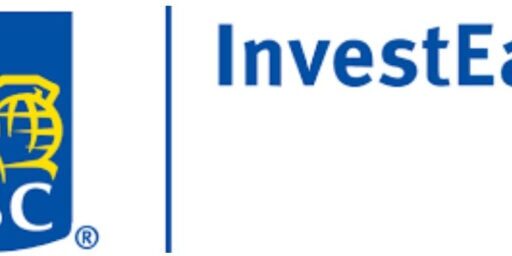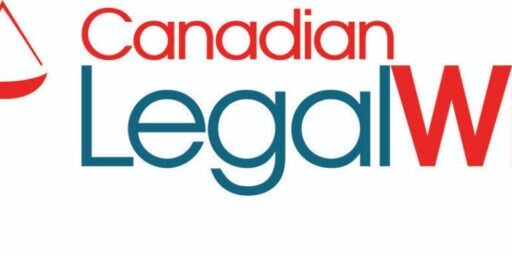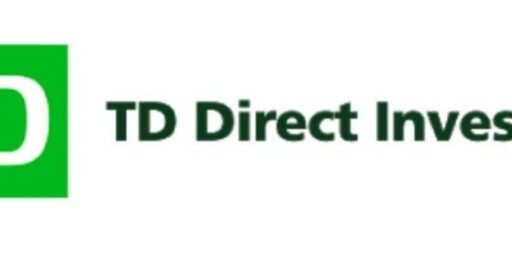Best Canadian Dividend ETFs for 2026 (And Why We Prefer Dividend Stocks)
Having written about dividend investing in Canada for close to twenty years, I regularly hear from readers wondering whether the best Canadian dividend ETFs are a better value than trying to do the research and select from the best dividend stocks in Canada.
It’s clear that Canadian investors have a soft spot for reliable, tax-efficient dividend income. Getting those steady quarterly payouts deposited into your account can do wonders for investor discipline and long-term planning.
In most cases, the real decision in the dividend ETFs vs individual stocks debate comes down to simplicity versus cost. If you’ve seen my deep dives on strategies like the Smith Manoeuvre or the Dogs of the TSX (BTTSX), you already know I lean toward building a portfolio of individual dividend stocks. Granted, that’s a bit easier (and less time consuming) because I use the research tools and unique analysis available through Dividend Stocks Rock.
But, if you want to keep things as simple and low-maintenance and possible – while still owning a portfolio of established Canadian companies that pay regular dividends – then one of my recommendations for the 2026 Best Canadian Dividend ETF is probably the cleanest way to do it. You get diversification, income, and minimal ongoing effort. All without having to worry about stock selection or constant monitoring.

Best 2026 Broker Promo
Up To $5,000 Cash Back + Unlimited Free Trades
Open an account with Qtrade and get the best broker promo in Canada: $250 when you invest $1,000!
The offer is time limited - get it by clicking below.
Must deposit/transfer at least $1,000 in assets within 60 days. Applies to new clients who open a new Qtrade account by March 31, 2026. Qtrade promo 2026: CLICK FOR MORE DETAILS.
Top Canadian Dividend ETFs in 2026 – Quick Comparison
Name | Ticker | # Of Holdings | MER | Dividend Yield |
iShares Core MSCI Canadian Quality Dividend Index ETF | XDIV | 21 | 0.11% | 3.78% |
S&P/TSX Canadian Dividend Aristocrats Index Fund | CDZ | 90 | 0.66% | 3.35% |
iShares Canadian Select Dividend Index ETF | XDV | 30 | 0.55% | 3.58% |
FTSE Canadian High Dividend Yield Index ETF | VDY | 56 | 0.22% | 3.56% |
BMO Canadian Dividend ETF | ZDV | 63 | 0.40% | 3.11% |
Invesco Canadian Dividend ETF | PDC | 46 | 0.54% | 3.85% |
IShares Core S&P/TSX Composite High Dividend Index ETF | XEI | 75 | 0.22% | 4.25% |
BMO Canadian High Dividend Covered Call ETF | ZWC | 89 | 0.75% | 3.96% |
What Is a Dividend ETF?
An ETF, or “Exchange Traded Fund,” is basically a simple way to get exposure to a group of investments all at once. The Canadian Dividend ETFs that I listed above are all traded on the Toronto Stock Exchange (often called the Canadian stock exchange because it’s by far the biggest one in Canada) and can be purchased in three clicks (under one minute for sure) using any Canadian brokerage account.
That group of assets might include Canadian stocks, U.S. bonds, REITs, or even alternative assets like cryptocurrencies.
In the case of Canadian Dividend ETFs, each one holds a collection of TSX-listed stocks known for paying consistent dividends. While the exact mix and weighting of stocks might differ slightly from one ETF to another, they’re generally aiming for the same thing: reliable income from established dividend payers.
Just like owning individual dividend stocks, holding a dividend ETF means you’ll receive regular payouts (usually quarterly or annually). These dividends will land directly in your brokerage account, ready for you to reinvest or use to help cover everyday expenses. They can also be DRIP-ed using a Dividend Reinvestment Plan in most cases.
Are Dividend ETFs a Good Investment?
Historically, Canadian dividend ETFs have been a pretty good investment for all the same reasons that Canadian dividend stocks have done well. Namely:
- Canada loves to ignore oligopolies. This lack of competition isn’t great for consumer prices, but it’s excellent for building super-stable dividend-producing companies.
- Canada’s market is heavy in financial and energy stocks – which tend to be big dividend players.
- Canadian dividends are taxed in a very friendly manner (essentially no tax up to $40K for both you and your significant other), making them very popular for income-oriented investors.
- Because Canadian blue-chip dividend companies are mature companies with long track records, they don’t have nearly as many ups and downs as tech stocks or other types of growth stocks. This tends to lead to better investor behaviour over the long term.
When looking specifically at dividend ETFs (instead of individual stocks), it’s important to note that purchasing a dividend ETF gives you instant diversification.
While the sector exposure might still be somewhat limited due to Canada’s heavy weighting of financials and energy companies, it will be much more diversified than choosing one or two individual stocks.
Best Canadian Dividend Stocks for 2026
Ticker | Sector | Div Streak | Dividend Yield | 5yr Revenue Growth | 5yr EPS Growth | 5yr Dividend Growth | Payout Ratio | P/E | |
Fortis | FTS.TO | Utilities | 52 | 3.60% | 6.15% | 5.26% | 5.02% | 74.53% | 21.11 |
Toromont Industries | TIH.TO | Industrials | 36 | 1.24% | 7.90% | 14.45% | 10.90% | 31.06% | 27.66 |
Canadian National Railway | CNR.TO | Energy | 29 | 2.55% | 4.47% | 8.70% | 9.07% | 48.07% | 18.87 |
Canadian National Resources | CNQ.TO | Communications | 25 | 5.39% | 17.98% | 4.76% | 22.55% | 74.30% | 13.80 |
Emera | EMA.TO | Utilities | 17 | 4.33% | 8.37% | -4.87% | 3.07% | 167.81% | 18.31 |
National Bank | NA.TO | Finance | 16 | 2.84% | 9.96% | 10.53% | 10.79% | 45.77% | 17.33 |
Alimentation Couche-Tard | ATD.TO | Business | 16 | 1.17% | 10.73% | 2.15% | 21.88% | 19.58% | 19.42 |
Brookfield Corp. | BN.TO | Finance | 16 | 0.49% | 3.93% | -28.67% | -5.59% | 104.65% | 102.42 |
Waste Connections | WCN.TO | Finance | 15 | 0.82% | 11.43% | 25.52% | 10.73% | 48.94% | 72.47 |
?????? (Hidden, click for access) | (Hidden, click for access) | ?????? (Hidden, click for access) | ?? | ?.??% | ?.??% | ?.??% | ?.??% | ???.??% | ??.?? |
Best Canadian Dividend ETFs in 2026
Here’s a closer look under the hood at each of our picks for the Best Canadian Dividend ETFs of 2026.
1. iShares Core MSCI Canadian Quality Dividend Index ETF (XDIV)
Investment Style: This is a relatively new addition to the list with an inception date of June 2017. This ETF is a low-cost portfolio of Canadian stocks with above-average dividend yield and steady or increasing dividends and strong overall financials.
The XDIV ETF has a fairly concentrated portfolio with only 17 positions, but with an MER of ~0.12%, it is seriously cheap for a dividend ETF. I’m thinking that this iShares ETF will continue to cannibalize XDV and other Canadian dividend ETFs due to its lower cost and similar exposure.
Top 10 Holdings:
- Royal Bank of Canada (RY)
- Manulife Financial Corp. (MFC)
- Pembina Pipeline (PPL)
- Toronto-Dominion Bank (TD)
- Sun Life Financial (SLF)
- Fortis (FTS)
- Suncor Energy (SU)
- Emera Inc (EMA)
- Great West Lifeco (GWO)
- Telus (T)
Key Facts:
- MER: 0.11%
- Number of stocks: 21
- Dividend yield: 3.78%
- Distribution frequency: Monthly
- AUM: 2.61 Billion
- 2024 Performance: 23.01%
2. S&P/TSX Canadian Dividend Aristocrats Index Fund (CDZ)
Investment Style: This ETF follows the dividend achievers index which holds dividend stocks that have a history of increasing their dividend (at least 5 consecutive years). I use this strategy for my leveraged dividend portfolio but with a very different selection of stocks.
The downside of this ETF is that it is expensive with a MER of 0.66%, and some questionable stock picks in my opinion (90 positions in total). The bright side of this fund is that it’s not dominated by financials like the other ETFs listed below (as of the date of this post).
Top 10 Holdings:
- Aecon Group Inc (ARE)
- Chartwell Retirement Residences (CSH)
- Great West Lifeco (GWO)
- Canadian Imperial Bank of Commerce (CM)
- Power Corporation of Canada (POW)
- Manulife Financial Corp. (MFC)
- Fiera Capital Corp (FSZ)
- Parkland Corp (PKI)
- Canadian Western Bank (CWB)
- TC Energy (TRP)
Key Facts:
- MER: 0.66%
- Number of stocks: 90
- Dividend yield: 3.35%
- Distribution frequency: Monthly
- AUM: $1.85 billion
- 2024 Performance: 20.07%
3. iShares Canadian Select Dividend Index ETF (XDV)
Investment Style: This ETF uses a methodology that combines dividend growth, yield, and average payout ratio, then chooses 30 positions with the highest yield. Although cheaper than CDZ, the MER is still pretty high for an ETF at 0.55%. This ETF has a large exposure to financials at almost 54%.
Top 10 Holdings:
- Bank of Montreal (BMO)
- Canadian Tire Class A (CTC.A)
- Royal Bank of Canada (RY)
- Bank of Nova Scotia (BNS)
- National Bank of Canada (NA)
- Toronto-Dominion Bank (TD)
- Canadian Imperial Bank of Commerce (CM)
- TC Energy Corp. (TRP)
- BCI Inc. (BCE)
- Sunlife Financial (SLF)
Key Facts:
- MER: 0.55%
- Number of stocks: 30
- Dividend yield: 3.35%
- Distribution frequency: Monthly
- AUM: $1.88 billion
- 2024 Performance: 7.6%
4. FTSE Canadian High Dividend Yield Index ETF (VDY)
Investment Style: Vanguard is relatively new to the Canadian ETF scene but they have a good selection with lower MERs which helps put pressure on the other providers. This ETF follows the FTSE Canadian High Dividend Yield index (52 positions) but does not include much detail about their strategy except that they are a market-weighted index that purchases common stocks with a history of above-average dividend yield. As with any ETF that is market weighted in Canada, it’s heavy in financials with almost 58% weighting.
Top 10 Holdings:
- Royal Bank of Canada (RY)
- Toronto-Dominion Bank (TD)
- Enbridge Inc. (ENB)
- Canadian Natural Resources (CNQ)
- Bank of Montreal (BMO)
- Bank of Nova Scotia (BNS)
- Suncor (SU)
- TC Energy Corp. (TRP)
- Manulife Financial Corp. (MFC)
- Canadian Imperial Bank of Commerce/Canada (CM)
Key Facts:
- MER: 0.22%
- Number of stocks: 56
- Dividend yield: 3.56%
- Distribution frequency: Monthly
- AUM: $4.12 billion
- 2024 Performance: 3.35%
5. BMO Canadian Dividend ETF (ZDV)
Investment Style: This ETF uses a methodology that looks for dividend growth, yield, and payout ratio. With 51 positions it has a MER in the middle of the pack. In terms of sector diversification, this ETF does a decent job with 41% financials exposure.
Top 10 Holdings:
- Royal Bank of Canada (RY)
- Bank of Nova Scotia (BNS)
- Enbridge Inc. (ENB)
- Toronto-Dominion Bank (TD)
- Canadian Imperial Bank of Commerce/Canada (CM)
- BCE Inc (BCE)
- Canadian Natural Resources (CNQ)
- Bank of Montreal (BMO)
- Manulife Financial (MFC)
- Canadian National Railway (CNR)
Key Facts:
- MER: 0.40%
- Number of stocks: 63
- Dividend yield: 3.11%
- Distribution frequency: Monthly
- AUM: $1.20 billion
- 2024 Performance: 2.78%
6. Invesco Canadian Dividend ETF (PDC)
Investment Style: Formerly called PowerShares Canadian Dividend Index ETF. This ETF mirrors the NASDAQ Select Canadian Dividend Index. This ETF owns high-yielding Canadian stocks with a track record of growing dividends (40 positions). While this ETF is not exactly cheap with a MER of 0.55%, it has a little less exposure to financials @ 38%. Still, this isn’t the best choice on this list in my opinion.
Top 10 Holdings:
- Canadian Natural Resources (CNQ)
- Enbridge Inc (ENB)
- Toronto-Dominion Bank (TD)
- Bank of Montreal (BMO)
- Bank of Nova Scotia (BNS)
- Manulife Financial (MFC)
- Sunlife Financial (SFC)
- Canadian Imperial Bank of Commerce (CM)
- TC Energy Corp (TC)
- Fortis (FTS)
Key Facts:
- MER: 0.54%
- Number of stocks: 46
- Dividend yield: 3.85%
- Distribution frequency: Monthly
- AUM: $828 million
- 2024 Performance: 1.51%
7. BMO Canadian High Dividend Covered Call ETF (ZWC)
Investment Style: If you’re looking for the ultimate in safe dividend yield, than ZWC is probably going to be your best bet. The unique thing about this ETF is that it uses an options strategy to generate more income – but it comes at the expense of capping your possible capital gains. It’s sort of like trading the chance at a really good upside in the future, for a guaranteed boost to your yield today.
In 2024 this would have resulted in a lot of lost capital gains as stock prices skyrocketed. BUT – in years where the market goes down or nowhere, the covered call strategy really shines. It’s not my personal cup of tea (I don’t like how high the fees are), but if you have a large RRSP and TFSA account, and you’re just looking to suck income out for retirement, there are worse options than this unique covered call dividend ETF.
Top 10 Holdings:
- Toronto-Dominion Bank (TD)
- Enbridge Inc (ENB)
- Royal Bank of Canada (RBC)
- Canadian Imperial Bank of Commerce (CM)
- Bank of Nova Scotia (BNS)
- Canadian National Railway (CNR)
- Canadian Natural Resources (CNQ)
- Manulife Financial (MFC)
- Bell (BCE)
- Bank of Montreal (BMO)
Key Facts:
- MER: 0.75%
- Number of stocks: 89
- Dividend yield: 3.96%
- Distribution frequency: Monthly
- AUM: $1.06 billion
- 2024 Performance: 11.97%
How to Buy Dividend ETFs in Canada
For most Canadians, the simplest way to invest in ETFs is through an online brokerage. There are plenty of options out there, and we regularly compare the best online brokers in Canada to make it easy for anyone to comparison shop.
That said, two names continue to come up at the top of the list: Qtrade and Questrade.
They’re both well-established, independent, cutting-edge platforms. In fact, we get asked about them so much we wrote a Questrade vs Qtrade comparison just so people could get to the bottom of the respective marketing claims.
Qtrade and Questrade both enter 2026 offering $0 commissions trading on both ETFs and individual stocks. That means if you buy an ETF like CDZ, you pay no commission. If you sell CDZ later, you still pay no commission. The same goes for stocks. For investors who make regular contributions, rebalance periodically, or just want simplicity, that lack of friction really matters.
This $0 trading (popularized by Robinhood down in the USA) makes it completely free to take a piece of your pay cheque and invest it with your RRSP, TFSA, or non-registered every month.
Canadian Dividend ETFs FAQ
Why I Don’t Invest In Canadian Dividend ETFs
I don’t want to be one of those bloggers that is the “Do as I say, not as I do” type of writers.
I personally don’t own any of the ETFs on our list simply because my portfolio has reached the size where I can own enough positions to get greater diversity than most dividend ETFs – without paying any MER.
The management expense ratio on the S&P/TSX Canadian Dividend Aristocrats Index Fund (CDZ) for example is .66%. On a $500,000 portfolio, that’s a hefty annual price tag of $3,300.
If I had less than $50,000 though, I’d definitely consider going with an all-in-one ETF or the iShares Core MSCI Canadian Quality Dividend Index ETF (XDIV) simply because it is the cheapest one on the list and the lack of diversification is no worse than its competitors.
As I said at the top, I prefer choosing from my list of best Canadian dividend stocks as opposed to going with one of the Canadian dividend ETFs from our list. That said, if you’re looking to generate stable (not to mention tax friendly) income from Canadian blue chip companies – while spending 3 minutes per month on your portfolio – you could do worse than just picking a Canadian dividend ETF and rebuying it repeatedly.

Best 2026 Broker Promo
Up To $5,000 Cash Back + Unlimited Free Trades
Open an account with Qtrade and get the best broker promo in Canada: $250 when you invest $1,000!
The offer is time limited - get it by clicking below.
Must deposit/transfer at least $1,000 in assets within 60 days. Applies to new clients who open a new Qtrade account by March 31, 2026. Qtrade promo 2026: CLICK FOR MORE DETAILS.











Are there ETFs’ monthly dividend distribution is in the form of dividends vs. interest incomes? I am asking for tax purpose. As I understand interest income is taxed as your ordinary income (higher tax bracket). Dividend income is much lower so dividend income is more tax advantageous. Are there some websites that have clear and accurate of this info.? I found conflicting info. For example VDY in its Vanguard website, it shows the annual distribution is in the form of eligible dividends, but monthly is income. Does that mean monthly distribution is in the form of interest incomes? Mormingstar shows interest income as annual distribution. Hence the confusion.
XDIV seems like a cost-effective option, even with 500,000 invested. Rebalancing of 20 stocks semi-annually @ $10/trade would incur a cost of $400, plus time spent. That’s .08%, pretty close to .11% charged by XDIV.
Wealthsimple – no fees
Is there a Canadian bank ETF (or any ETF) that reinvests the dividends, rather than paying them out? I’m asking because I’d like something like this for my kids’ informal trust accounts so it can grow tax free and have no income attributable to me upon which to pay taxes.
It’s called DRIP (Dividend Reinvestment Plan). If you look into Fund Facts, they will state if it’s a DRIP fund, and just ensure that your brokerage has enabled DRIP’s on your account :)
Yes, Horizons has several total return ETFs (technically, called “corporate class mutual funds”), including HEWB Equal Weight Canada Banks Index ETF (MER .25%). That kind of ETFs is particularly suited for non-registered accounts.
FT surely you don’t consider CDZ to be the “best” Canadian dividend ETF? In my books CDZ would be more credible if its holdings were equal weighted rather than yield weighted. High yielding stocks generally underperform low yielders.
Someone should start up an ETF which equal weights the Canadian Dividend All-Star List. That list truly contains ALL Canadian dividend companies who have grown their dividends by at least 5 consecutive years!
Hey There!
I know I’m a little late, my apologies! The dividend ETF route vs. individual stocks seems more my route at the moment. Is there a list of international dividend ETFs you have made or can recommend?
If you have an article on what to consider before choosing an international ETF vs a U.S. or Canadian focused one, that would be super helpful. All I know is international is more diversified, but would that mean it performs worse? I currently hold XEQT for my index investments, so I would have to see if there is overlap with my choice of dividend ETF, but I have yet to know if investment overlap is bad or not.
I see you’ve mentioned in a couple articles you prefer to globally diversify through your index investing, is this just due to tax regulation?
I’ve really enjoyed and benefited from your content, keep up the great work, and thank you!
Jake :)
i just want to say thank you everyone for your contribution i am a newbie investor you all are angels
What do you think about the TD Q Canadian Dividend ETF (TQCD)?
With a mer of 0.35%, it seems like they have a number of quality holdings. Do you own?
Top Ten Holdings
Power Corp of Canada – Common 4.82%
Algonquin Power & Utilities Corp – Pfd Sr D 4.65%
BCE Inc – Common 4.24%
Enbridge Inc – Common 4.07%
TELUS Corp – Common 4.03%
Great-West Lifeco Inc – Common 3.87%
Bank of Nova Scotia – Common 3.81%
Restaurant Brands International Inc – Common 3.73%
Canadian Imperial Bank of Commerce – Common 3.71%
Northland Power Inc – Common 3.61%
Hi FT, what are your thoughts in holding XDIV and VCN (50-50)?
For background, I am researching which investments to select for a non-reg account as part of my Smith Manouvre strategy. Ideally, this account will house all my Canadian equities as part of my larger diversified portfolio which includes RRSPs, TFSAs.
The reason I thought 50-50 is to better diversified in the Canadian equities side but also get some good dividend yields to pay down the non-deductible mortgage faster while being tax efficient.
Let me know.
Thanks in advanced!
Hey Abid, I’ll let FT comment here if he wants to as well, but are you aware of the complications of using ETFs to do a SM? Something to think about!
Great list. Thanks for putting it together. Like you mentioned they are very finance energy heavy. Same as my portfolio but i will look for individual stocks in those etfs in other sectors.
Cheers
Thanks for the updated list :) I have ZDV but a small position in it. I like that these dividend ETFs are pretty generous, considering ETFs don’t traditionally have much in the way of dividends.